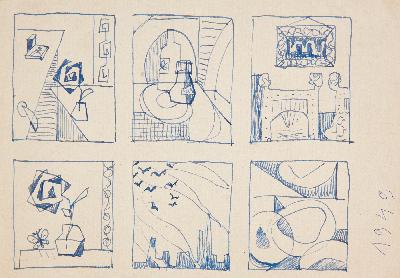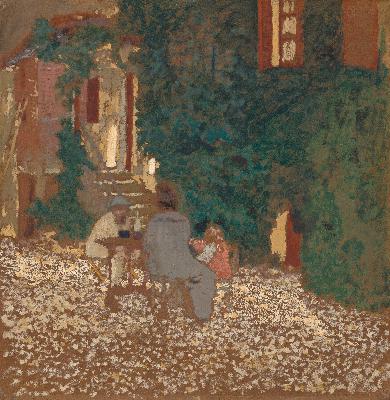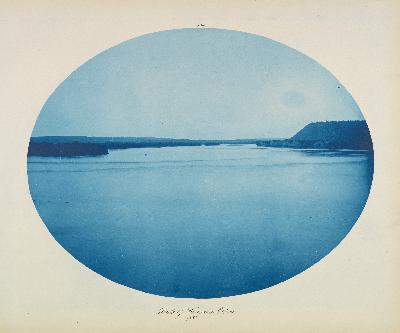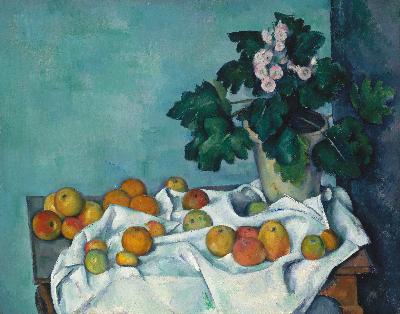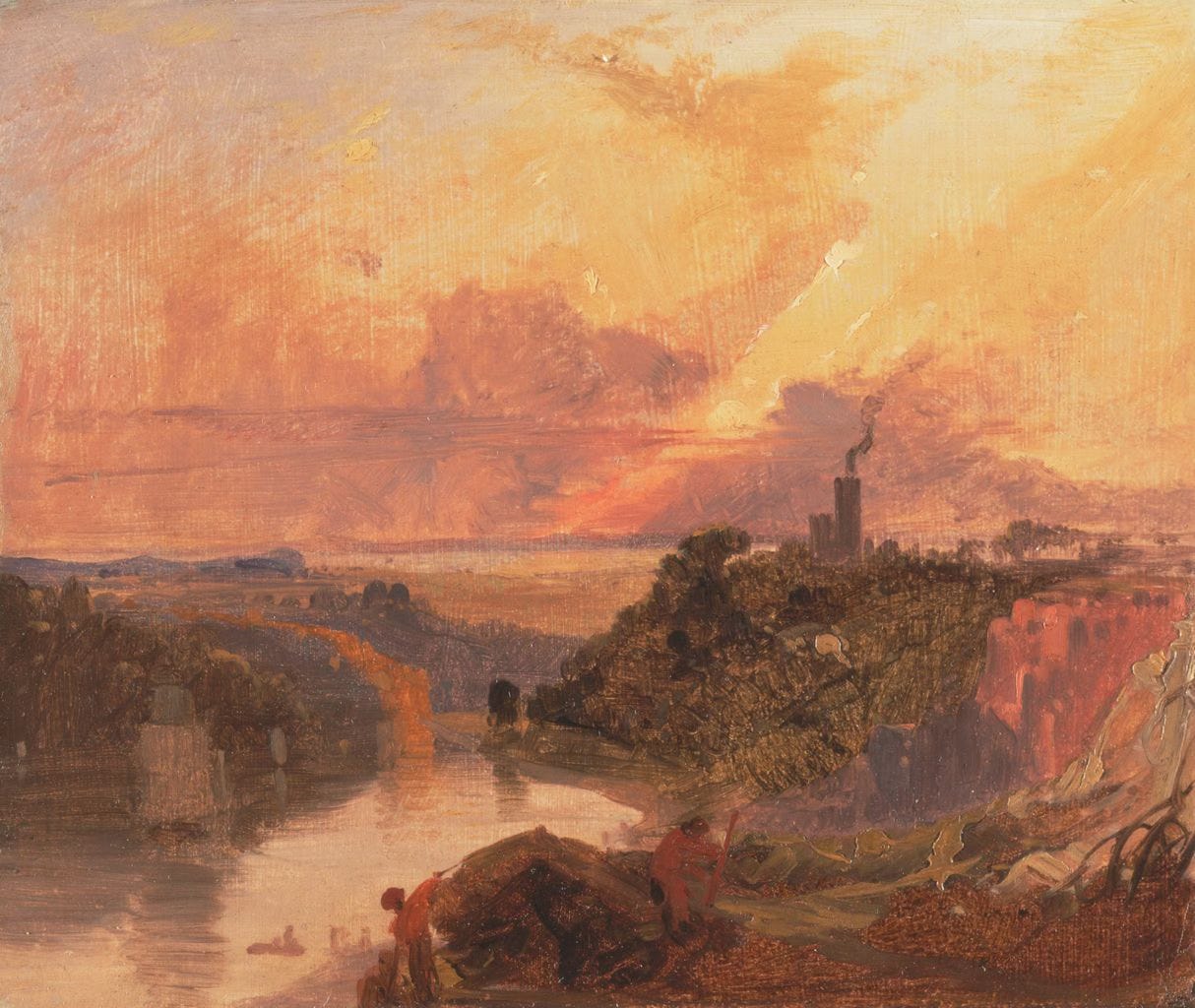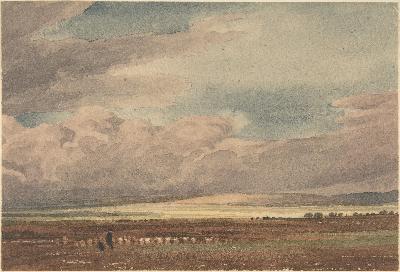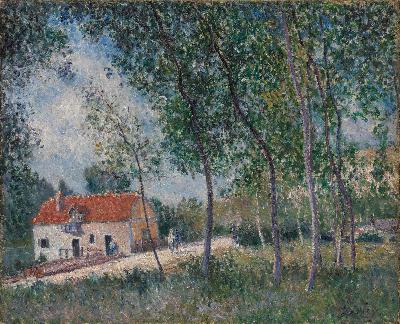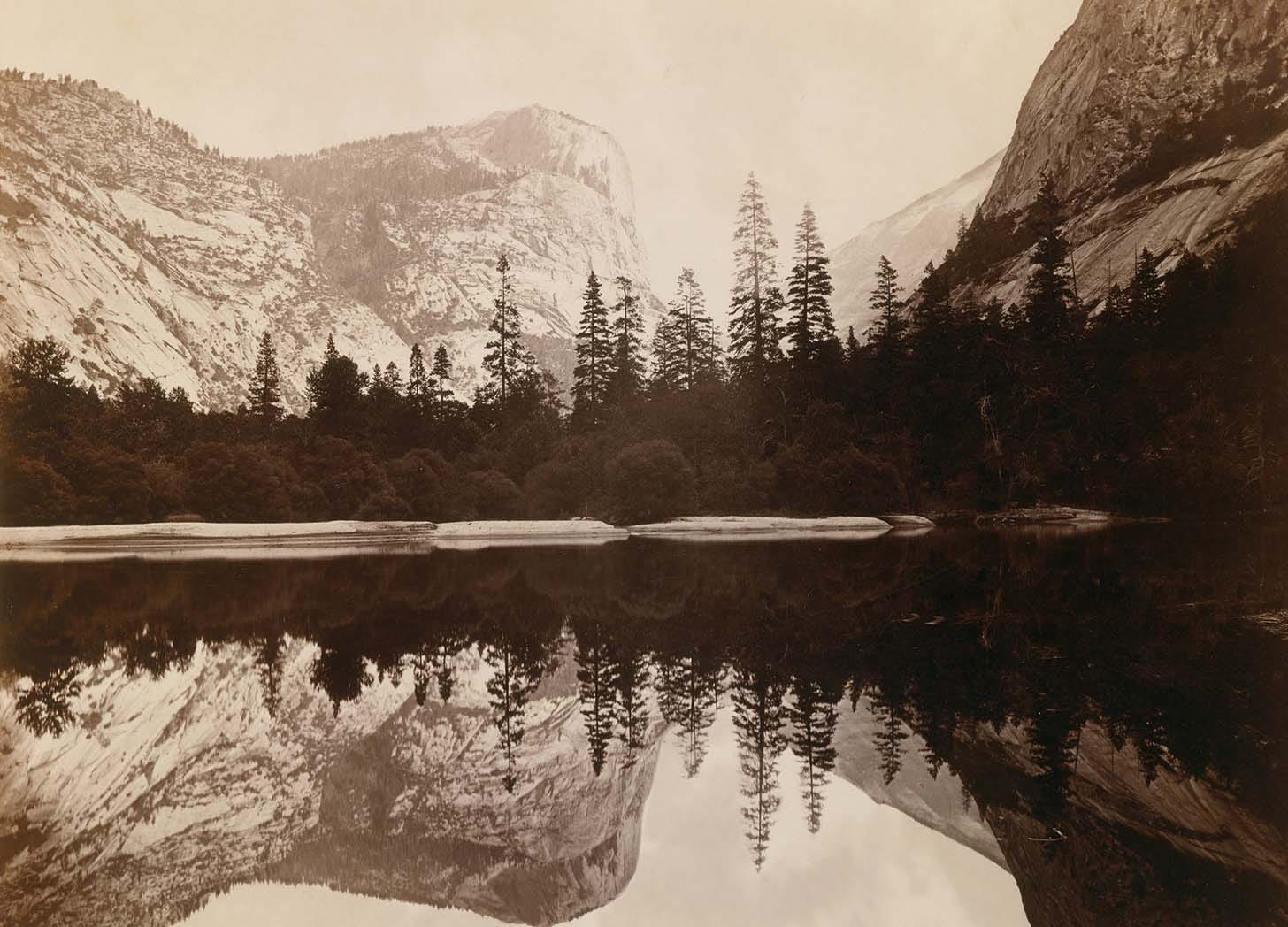Discover Women of Letters
Women of Letters

 Women of Letters
Women of Letters
Author: Jana M. Perkins
Subscribed: 0Played: 4Subscribe
Share
© Women of Letters
Description
A longform interview series celebrating women’s paths to professional success. Now in its second season.
womenofletters.substack.com
womenofletters.substack.com
12 Episodes
Reverse
With her debut novel, Emily has accomplished the rare feat of writing a book that is timely, incisive, and deeply affecting — all while being the kind of impossible-to-put-down read that audiences dream of finding.The book, along with its author’s Substack, draws on Emily’s years of experience as a woman working in tech to offer cultural commentary that is both intellectually rigorous and emotionally honest. In one exchange, for example, we see one character confronting another, saying, “You’d think a woman that smart would know better.” The book’s main character, Edie, responds without hesitating: “Not at all,” she says. “Smart women look for challenges.”She’s one of the few writers whose latest work I never miss. I’m thrilled we were able to connect over this interview.Read the full interview at womenofletters.substack.com/p/emily-j-smith—Emily J. Smith is a writer based in Brooklyn. Her debut novel, NOTHING SERIOUS, is out now from William Morrow / HarperCollins. She has a BS in computer engineering from Cornell, an MBA from UC Berkeley. Her writing has appeared in The Rumpus, Catapult, Curbed, Slate, Hobart, The Washington Post, Vice, and elsewhere. She publishes regularly on Substack and runs the workshop From Corporate to Creative Writer.——Song: “Walk Through the Park,” by TrackTribe This is a public episode. If you would like to discuss this with other subscribers or get access to bonus episodes, visit womenofletters.substack.com
In her meticulously researched, newly published book, Corinne brings her years of expertise as a Wharton professor and an economist studying gender to answer the age-old question: is it possible for women to have it all?From parenting to partnership to career planning to self-care, she offers a wealth of accessibly articulated and data-rich insight into so many subjects central to women’s lives—including a detailed account of the many reasons why, historically, ‘having it all’ has been such an elusive goal. If there was one book published on this topic in the last year I would recommend as essential reading, it would be this one.—Corinne Low, PhD, is an associate professor of business economics and public policy at the Wharton School, where she teaches an award-winning course on the economics of discrimination. Her research has been published in journals such as the American Economic Review, the Quarterly Journal of Economics, and the Journal of Political Economy. She regularly speaks to and advises companies on their practices, and her research has been featured in media outlets from Vanity Fair to the Harvard Business Review. She received her PhD in economics from Columbia University and her BS in economics and public policy from Duke University, and formerly worked for McKinsey & Company. She lives in Philadelphia with her family. Having It All is her first book.— —Song: “Walk Through the Park,” by TrackTribe This is a public episode. If you would like to discuss this with other subscribers or get access to bonus episodes, visit womenofletters.substack.com
Nikkya’s writing in Mama, her first book, is visceral and punctuated in its vulnerability. She recounts each of the emotionally saturated events that frame her memoir with open-hearted precision, including her mother’s incarceration, the adoption of her half-brother, and the experience of falling in love with her now-wife.“We keep the conversation light,” she recalls of visiting her mother in jail as a teenager. “We do not go deep. We do not ask about fears, wants, or needs.” Her book, however, does exactly that, venturing into all of the above and more. It was a privilege to get to speak with her about some of the stories behind those stories.Read the full interview at womenofletters.substack.com/p/nikkya-hargrove—Nikkya Hargrove is a LAMBDA Literary Nonfiction Fellow and has written about adoption, marriage, motherhood, and the prison system for The Washington Post, the Guardian, the New York Times, Scary Mommy, and Shondaland. She has worked for social impact nonprofits providing support to underserved communities throughout her professional career. She graduated from Bard College and lives in Connecticut with her wife and three children.— —Song: “Walk Through the Park,” by TrackTribe This is a public episode. If you would like to discuss this with other subscribers or get access to bonus episodes, visit womenofletters.substack.com
Among the most compelling memoirs are those that offer a window into experiences so singular they would otherwise remain known to only a fraction of humanity. Literary treasures of this kind are scarce not because extraordinary experiences evade us, but because we so rarely encounter the writer who can transmute those experiences into essential reading.Carrie is one of those writers, and Private Equity is one of those memoirs. Named one of TIME Magazine’s must-read books of the year, one of Vogue’s best books of the year, and the work memoir of the year by Harper’s Bazaar, it chronicles, as its central focus, her time spent working at one of the most prestigious hedge funds in the world. Yet to say that Private Equity is a memoir about Wall Street, the financial industry, or even a professional coming-of-age is to fail to capture the breadth of insight it offers across so many intensely interesting subjects.As Carrie explains below, “A decision is only risky if what’s at stake is valuable.” I learned a lot about decision-making, risk, and value from her propulsively readable memoir, and it was a privilege to get to learn more about her in this interview.Read the full interview at womenofletters.substack.com/p/carrie-sun—Carrie Sun was born in China and raised in Michigan. She holds an MFA in creative writing from The New School. She lives in Jersey City with her husband and young son. Private Equity: A Memoir is her first book.— —Song: “Walk Through the Park,” by TrackTribe This is a public episode. If you would like to discuss this with other subscribers or get access to bonus episodes, visit womenofletters.substack.com
The only word that can be used to adequately describe Kapka’s work is ‘mesmerizing.’ The effect either of reading her writing or of listening to her speak is one of being swept into what feels like an alternate dimension, where everything is tinged with a kind of numinosity and wonder.To experience the vividness of her perspective once is to seek its repeated encounter — and, fortunately for us, it can be found throughout what are currently more than a dozen of her published books and countless interviews. I’m delighted, with our conversation, to have added to this rich collection of transporting exchanges.—Kapka Kassabova is a multigenre writer of narrative non-fiction, poetry, and fiction. Border, the first book in her Balkan quartet, won a British Academy Prize, the Scottish Book of the Year, the Stanford-Dolman Travel Book of the Year, and the Highland Book Prize. Kassabova grew up in Bulgaria and studied in New Zealand; today, she lives by a river in the Scottish Highlands. Her work has been translated into twenty languages, and she remains literarily bilingual with English being her primary literary language and Bulgarian a close second.— —Song: “Walk Through the Park,” by TrackTribe This is a public episode. If you would like to discuss this with other subscribers or get access to bonus episodes, visit womenofletters.substack.com
I first discovered Jennifer through her Minorities in Publishing podcast, which shines a light on underrepresented professionals in the book publishing world. Its episodes generously offer everything from real-world context on issues like representation to a behind-the-scenes look at the publishing industry to a deep dive into the personal histories of guests.The podcast recently celebrated its 10th anniversary and is already charging ahead through its 11th year — a feat of longevity that, under her leadership, simultaneously comes as no surprise to long-time listeners and marks a significant accomplishment in today’s increasingly ephemeral media landscape. I’ll continue to be among the many who are celebrating this major milestone as we eagerly look ahead to its future from here.—Read the full interview at womenofletters.substack.com/p/jennifer-baker.Jennifer Baker is an author, editor, writing instructor, and creator of the Minorities in Publishing podcast. She’s been a recipient of NYSCA/NYFA and Queens Council on the Arts grants, a 2024 Axinn Writing Award, and was named the Publishers Weekly Star Watch SuperStar in 2019. She is the author of Forgive Me Not (2023), a 2023 Los Angeles TimesBook Prize finalist, an NYPL 2023 Best Book for Teens, and 2023 Best of the Best by the BCALA, and the editor of Everyday People: The Color of Life — A Short Story Anthology(2018). Her website is JenniferNBaker.com.— —Song: “Walk Through the Park,” by TrackTribe This is a public episode. If you would like to discuss this with other subscribers or get access to bonus episodes, visit womenofletters.substack.com
In all my reading, I’ve encountered few works like Marianne’s Intervals.Her book offers a capacious look at life, death, and dying through a chronicling of her mother’s decision to withdraw from life-sustaining treatments. As she describes it, “Intervals are temporary places of rupture and of rest; they are liminal, partial and in-between. … I invite you to bear loose witness — to sit with me, as close to the pain as I can get — on the condition that the story doesn’t end here, that there is yet a world to win.”The result is an expansive, important, and generous work. I gained a lot from having had the benefit of her perspective.— Marianne Brooker is based in Bristol, where she works for a charity campaigning for climate and social justice. She has a PhD from Birkbeck, University of London and a background in arts research and teaching. She won the 2022 Fitzcarraldo Essay Prize for Intervals, her first book.— —Song: “Walk Through the Park,” by TrackTribe This is a public episode. If you would like to discuss this with other subscribers or get access to bonus episodes, visit womenofletters.substack.com
Every so often, you encounter someone who has done so much so well that it becomes difficult to capture the extent of their accomplishments. Mary Jo is one of those people.She’s published nine books of poetry and numerous works of translation, with another — Dante’s Paradiso — forthcoming later this year. Her poems have been selected for inclusion in the Best American Poetry series multiple times, and she’s taught everywhere from Yale University to the New School to the Iowa Writers’ Workshop. Among the many awards she has received for her work are a Guggenheim Fellowship, a Pushcart Prize, and a National Book Critics Circle Award.It was a privilege to get to learn more about the life and writing of a poet whose work is as formidable in thought as it is wide-ranging in its cultural impact.Link to interview: womenofletters.substack.com/p/mary-jo-bang—Mary Jo Bang is the author of nine books of poems—including A Film in Which I Play Everyone, which was nominated for a Lambda Literary Award, a PEN Voelcker Award, and the Heartland Booksellers Award, A Doll for Throwing, and Elegy which received the National Book Critics Circle Award. She’s published translations of Dante’s Inferno, illustrated by Henrik Drescher, and Purgatorio; Paradiso is forthcoming from Graywolf Press in 2025. She is the translator of Colonies of Paradise: Poems by Matthias Göritz, and co-translator, with Yuki Tanaka, of A Kiss for the Absolute: Selected Poems of Shuzo Takiguchi. She has a BA and an MA in Sociology from Northwestern University, a BA in Photography from the Polytechnic of Central London (now Westminster University), and an MFA in Poetry from Columbia University. She’s been the recipient of a Hodder Fellowship from Princeton University, a Guggenheim Foundation Fellowship, and a Berlin Prize Fellowship from the American Academy in Berlin. She teaches at Washington University in St. Louis.——Song: “Walk Through the Park,” by TrackTribe This is a public episode. If you would like to discuss this with other subscribers or get access to bonus episodes, visit womenofletters.substack.com
I consider Elisa to be among the foremost essayists of our time.As someone who is both a poet and an essayist, she writes in a way that few others do. Regular readers of her work will have noticed, for example, how her prose contains both the crystalline logic of well-reasoned argument and the subtle music of verse — how it features, simultaneously, the rational and the rhythmic, marrying thoughtful reasoning with sonic richness. It is thus no surprise that she regularly publishes in places like The Paris Review and The New York Times (where she has been a poetry columnist since 2020), or that she recently released her third book of essays.If you haven’t previously encountered her work or had the opportunity to study what makes it so distinct, this interview offers an excellent starting point. I’m grateful to have connected over it.Link to interview: womenofletters.substack.com/p/elisa-gabbert—Elisa Gabbert is the author of seven collections of poetry, essays, and criticism, including Any Person Is the Only Self, Normal Distance, The Unreality of Memory & Other Essays, The Word Pretty, and The Self Unstable. She writes the On Poetry column for The New York Times, and her work has appeared in Harper’s, The Atlantic, The Paris Review, The New York Review of Books, The Believer, The Yale Review, American Poetry Review, and elsewhere. She lives in Providence.— —Song: “Walk Through the Park,” by TrackTribe This is a public episode. If you would like to discuss this with other subscribers or get access to bonus episodes, visit womenofletters.substack.com
As someone who now, effectively, lives between three different countries, I’ve become increasingly interested in the relationship between space and self. I’m finding that, far from being the passive surroundings onto which we project our experiences of the world, the places in which we conduct our days are, in fact, the very ingredients that determine who we are and how we are able to think.These themes take center stage in Noreen’s A Flat Place, a rich and winding work which has as its subject the specific environment of flat landscapes — those that are not just geographic, but social and psychological, as well. As she writes in her book, “A flat place helps us to reimagine what it means for something to ‘happen’ and to rethink what it means for something to ‘matter.’ To accept that not all discoveries involve digging for answers, or ascending heights.”It was a joy to take in the intricate cartography of her thoughts, both in this book and through our conversation.—Noreen Masud is a Lecturer in English Literature at the University of Bristol, and an AHRC/BBC New Generation Thinker. Her memoir-travelogue, A Flat Place (Hamish Hamilton [Penguin] and Melville House Press, 2023), was shortlisted for the Women’s Prize for Non-Fiction, the Sunday Times Charlotte Aitken Trust Young Writer of the Year Award, the Jhalak Prize, and the RSL Ondaatje Prize.— —Song: “Walk Through the Park,” by TrackTribe This is a public episode. If you would like to discuss this with other subscribers or get access to bonus episodes, visit womenofletters.substack.com
My notes, in preparation for the writing of this introduction, formed a web of densely concentrated insight on the human experience courtesy of Ayşegül’s latest novel, The Anthropologists. The book follows its main character, Asya — a documentary filmmaker — through the kind of rich chronicling of her everyday life that is often offered within the context of anthropological writings. The small, in this way, is made large, expanding to fill the container of major narrative events in ways that would typically be reserved for moments of high drama.“Daily life,” Asya says at one point in the novel, “was a difficult story to tell.” Her grandmother responds by urging her to “forget about daily life,” because, in her view, “no one cares about that.” Yet, as the widely regarded success of this novel makes clear, there are, in fact, a great many people who care about that. If in your reading you enjoy attention to detail, incisively rendered commentary, and vivid jolts of emotion, you’ll enjoy not only this interview but also its author’s work in general, which you can find everywhere from The Paris Review to The New Yorker to the shelves of your favourite bookstore.Link to interview: womenofletters.substack.com/p/aysegul-savas—Ayşegül Savaş is the author of the novels Walking on the Ceiling, White on White, and The Anthropologists. Her first non-fiction book The Wilderness is forthcoming in October. Originally from Turkey, she lives in Paris.— —Song: “Walk Through the Park,” by TrackTribe This is a public episode. If you would like to discuss this with other subscribers or get access to bonus episodes, visit womenofletters.substack.com
All of us, I think, have had the experience of seeing someone else take credit for something we’ve done. But how many of us can say that our work was used by another person to earn a Nobel Prize?The American novelist, poet, and editor Sanora Babb can, as Iris so brilliantly illuminates in her forthcoming biography, Riding Like the Wind. In Babb’s case, it was John Steinbeck who took credit for her work when — despite lacking her permission — he used her notes to write The Grapes of Wrath. His novel went on to win not only a National Book Award but also a Pulitzer Prize, and in addition to being turned into an Academy Award-winning film it would also eventually play a major role in Steinbeck’s being awarded the Nobel Prize in Literature. Meanwhile, the novel that Babb had written was shelved, and it would not appear in print for more than 60 years.As Iris’s publisher explains, “the stories we know — and who tells them — can change the way we remember history.” It was a privilege to talk with an author who has done so much to reclaim voices like Babb’s from the historical record.— Iris Jamahl Dunkle is an Emerita Poet Laureate of Sonoma County and a faculty member at UC Davis. She has authored two biographies: Charmian Kittredge London: Trailblazer, Author, Adventurer (University of Oklahoma Press, 2020) and Riding Like the Wind: The Life of Sanora Babb (University of California Press, forthcoming). Her fourth poetry collection, West : Fire : Archive, was recently published by The Center for Literary Publishing. Dunkle writes a weekly blog called Finding Lost Voices, which revives the voices of women who have been forgotten or misremembered and serves as the Poetry and Translation Director at the Napa Valley Writers’ Conference.— — With this interview, we have officially launched Season 2 of the series! I am incredibly proud to have reached this milestone together, and I am so excited to be embarking upon a new one with our expansion into audio.A very special thank you to Iris, for being our first guest on the podcast; to her publicist Cassie, for connecting us; and to all of you, for having been here along the way. I could not have dreamed of a better inaugural episode, and I can’t wait for you to hear it.—Song: “Walk Through the Park,” by TrackTribe This is a public episode. If you would like to discuss this with other subscribers or get access to bonus episodes, visit womenofletters.substack.com


